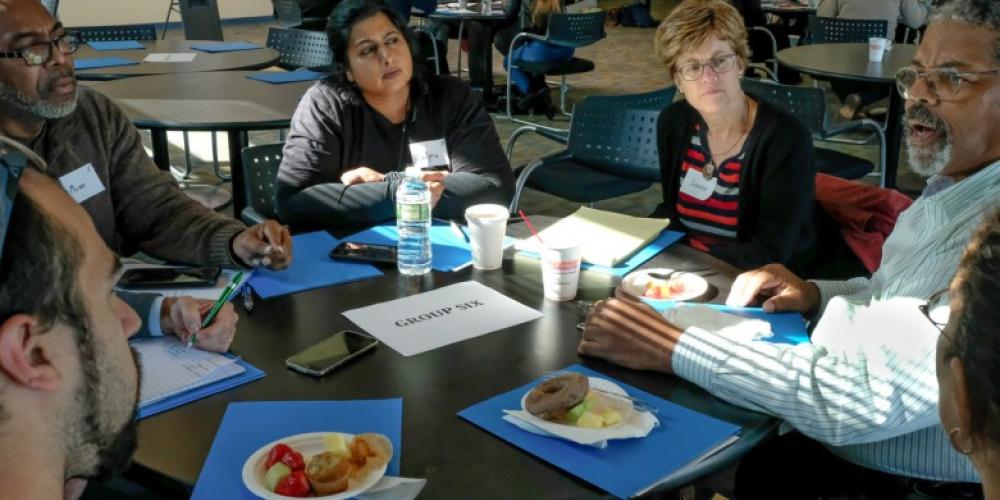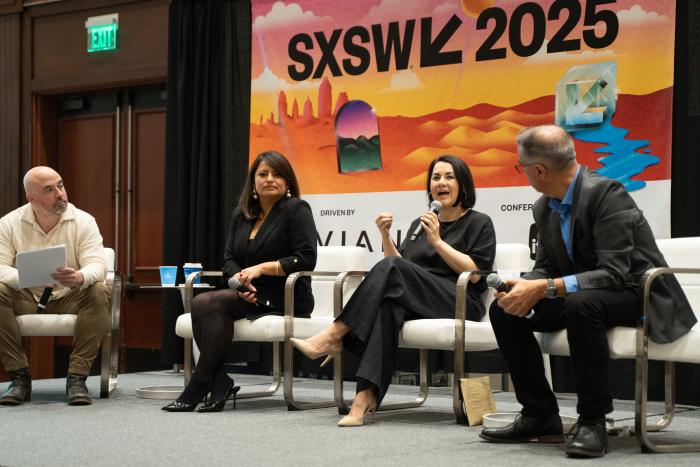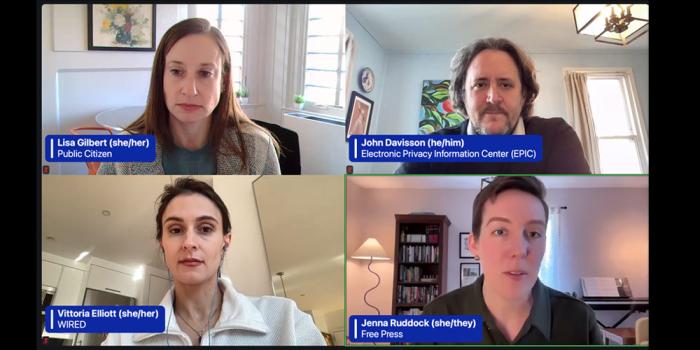Newark Residents Come Together to Advocate for the Civic Info Bill

One man worried that a Flint-like water crisis could develop in a New Jersey city without any general alarms being sounded.
A woman wondered why the suburban media she follows never seems to cover the positive changes she’d noticed in Newark.
A librarian who’s eager to help students sort informational wheat from chaff — so they don’t fall into the traps set by fake news — lamented that many young people don’t know libraries can serve as that kind of resource.
These were some of the tales of concern about the state of local news and civic information in New Jersey that emerged on Saturday in Newark at Growing Garden State Stories, the first of three such community meetings that Free Press Action Fund is holding this fall.
The meeting was held on the campus of the New Jersey Institute of Technology. NJIT is one of five state higher-education institutions — along with the College of New Jersey, Montclair State, Rowan and Rutgers — that would play leading roles in a proposed nonprofit Civic Information Consortium. The consortium would be a public charity that awards grants to media and community groups to test out ways to give New Jersey residents the local news they need.
The 35 people who attended learned of a bill now pending in the state legislature that would support the consortium. The Civic Info Bill, which Free Press Action Fund helped draft, calls on lawmakers to fund this new nonprofit via a portion of the $332-million windfall New Jersey reaped this year by selling off two of its public-television stations.
Participants agreed with the key arguments for the bill:
- It’s only right that some of the revenue earned by selling off the state’s 20th-century public media be used to support new projects fulfilling residents’ news-and-information needs.
- This is an opportunity for New Jersey to emerge from the shadow of New York City and Philadelphia and become a pioneering national media leader.
- Chronically underserved communities deserve a chance to build their own independent media rooted in local concerns.
Senate Majority Leader Loretta Weinberg and Assembly Majority Leader Louis Greenwald introduced the Civic Info Bill (S3303/A4933) in June, and 13 other lawmakers have signed on as sponsors.
As we approach the legislature’s lame-duck session, which will begin after the November election, it’s critical that people raise their voices so the bill’s backers can make a push to pass the bill.
Free Press Action Fund staffers at the Newark meeting described to attendees the important role that people like them could play in pushing the Civic Info Bill up lawmakers’ priority list.
Participants got quick tutorials in key grassroots-advocacy skills, like writing letters to the editor and authentic, personal emails to lawmakers, setting up visits to legislative offices, and taking part in direct lobbying in the halls of the statehouse.
The session drove home the point that the most effective activism happens when people clearly tie the goals of a bill to their own hopes and concerns.
Concerns like the one expressed by attendee Suzanne Joblonski, a young community journalist who got tired of the relentlessly negative coverage Newark gets from many outside media outlets and set out on a mission to cover the city’s positive, community-building endeavors.
Or the frustration of fellow attendee Lenny Thomas, who found it hard to get traditional newsrooms interested in a lawsuit over lead-contaminated water in Newark schools — until the plaintiffs won some victories in court.
Or the plaintive statements of Darren Sweeper, a librarian at Montclair State, who talked about offering to help a student research a paper on a current event, only to be told, “Why in the world would I ask a librarian for help?”
Sweeper said it illustrated a larger point: People may not know the role that libraries play in helping the public make sense of all the news happening around them. (Happy ending to this one: Three weeks later the student came to him sheepishly to ask for his aid.)
A theme ran through the conversations: Fiscal woes and consolidation have battered both commercial and nonprofit media to the point that they struggle to meet many residents’ needs. These New Jerseyans crave media that have the resources and the will to pay attention to their concerns, cover important issues in their communities and connect those issues to what’s happening in neighboring towns.
And they see the Civic Information Consortium as a wise investment in nurturing that type of new media.
As the push for the Civic Info Bill continues through the fall, Free Press Action Fund will hold two more community-action meetings:
- Thurs., Nov. 16, at Camden Conference Center, 601 Cooper St., 6:30–8:30 p.m. (doors open at 6). RSVP here.
- Thurs., Dec. 7, at the College of New Jersey’s Education Building, Ewing Township campus, 7–9 p.m. (doors open at 6:30 p.m.). RSVP here.
Take action to support the Civic Info Bill, and learn more about the Civic Information Consortium here.
Check out a Flickr album of photos from the event.




